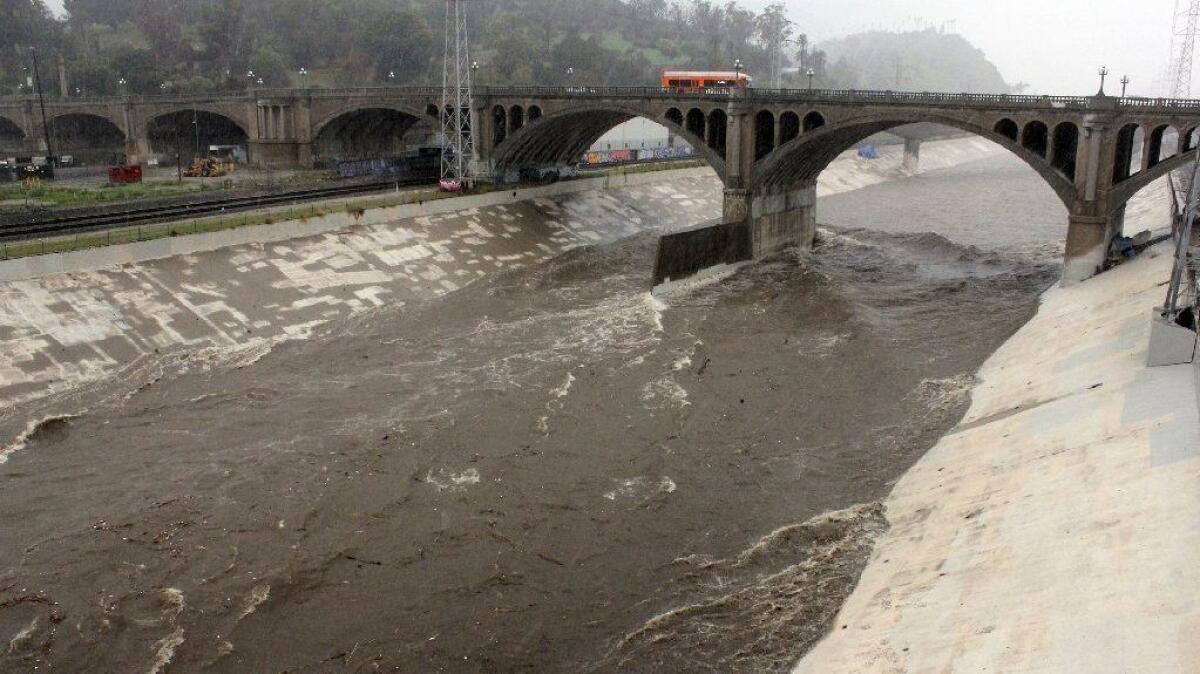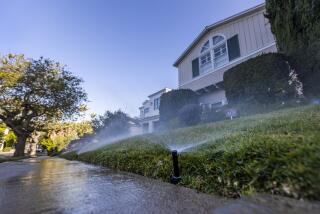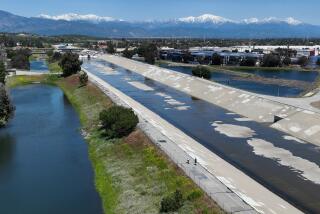Readers React: The Delta tunnels project would capture more stormwater. So why cut it to one tunnel?

To the editor: The article, “California wastes most of its rainwater, which simply goes down the drain,” laments that much of our sporadically abundant rainwater is not captured and, consequently, is “wasted” by being sent to the ocean. As noted in the article, much will be done to remedy this situation as a result of Los Angeles County’s Measure W property tax passed last year.
Columnist George Skelton wrote in a previous article about Gov. Gavin Newsom’s “potential grand compromise” to reduce the plan for two conveyance tunnels beneath the Sacramento-San Joaquin River Delta to just one tunnel. What seems to be unrecognized by those who advocate cutting the water baby in half is that the so-called compromise would reduce the amount of water the project can divert — in full compliance with environmental regulations — from the Sacramento River.
In short, the single tunnel alternative would allow more water to be “wasted” to the ocean than the twin tunnels.
It’s ironic that we apparently can’t build enough stormwater recovery projects fast enough while the twin tunnels are whittled down. Just as ironic is that the unit cost of water produced by the twin tunnels is less than that of the stormwater recovery projects we will be paying hundreds of millions of dollars for each year.
Dan Masnada, Valencia
The writer was general manager of the Castaic Lake Water Agency from 2002 to 2016.
..
To the editor: The Southern California climate is semi-arid, so our elected officials should have long ago made capturing, treating and infiltrating stormwater a high priority.
The requirement that new developments collect runoff from three-quarters of an inch of rainfall was first established by the California Regional Water Board, Los Angeles Region, in 2000. Municipal governments were required to implement and enforce the rule when approving residential, commercial and industrial developments.
As with all good public initiatives, this rule was challenged administratively and in the courts. The standard was upheld on multiple appeals, demonstrating that it was based on sound science, local data and good public policy.
Nearly two decades later, we continue to lament the waste of stormwater runoff because how we plan, design, build and redevelop has only improved marginally. We will not succeed in achieving a sustainable water future unless government officials redouble their efforts to better manage stormwater as a public resource.
Xavier Swamikannu, Westchester
The writer served as head of the stormwater program for the California Water Board, Los Angeles, and is currently an assistant adjunct professor at UCLA’s Institute of Environment and Sustainability.
..
To the editor: When Mother Nature unleashes rain upon California, it frequently arrives in quantities that are unmanageable. While it is certainly possible to capture some of this bounty, attempts to capture any more than a small fraction of a massive downpour can be dangerous.
The Los Angeles Basin is a giant alluvial plain created ages ago by the massive movement of water and debris. The idea that we should capture large quantities of water upstream of the city is naive.
Be careful what you wish for — you may just get it.
John Keller, Santa Barbara
..
To the editor: We live in a state prone to droughts; this is not new. Every time there is a big storm, experts say that we have to do something about saving all this water that is running to the sea.
Wouldn’t the money that will go toward the bullet train project be better spent on finding ways to capture more stormwater runoff?
Christina R. Flores, Los Angeles
Follow the Opinion section on Twitter @latimesopinion and Facebook
More to Read
A cure for the common opinion
Get thought-provoking perspectives with our weekly newsletter.
You may occasionally receive promotional content from the Los Angeles Times.






